“We are learning about the unique role that young people can play in contributing to the transformation of society,” said one participant attending the youth conference in Kampala, Uganda. “Social transformation is not possible without personal transformation,” he added, capturing an insight gleaned from the three days of intense yet joyful consultations involving 1,200 youth hailing from a broad diversity of communities in South Sudan and Uganda. They had gathered nearby the Mother Temple of Africa—the first Bahá’í House of Worship in that continent, sitting atop Kikaya Hill, in northern Kampala—a sacred site they would be fortunate enough to visit at the conclusion of their time together.
A group from Juba, South Sudan, was undismayed when part way through the 700- kilometre journey to Kampala their bus broke down. As much as the group wanted to get to the venue on time, they waited patiently and unperturbed while repairs were carried out. When the bus was once again ready for use they continued their journey with prayers and songs, eventually arriving to be welcomed by the beaming smiles of the friends in Kampala who were eagerly receiving participants from near and far.
“I have no words to describe the love and friendship I have experienced at this conference”
A participant at the conference
Opening devotions marked the inclusiveness of the conference, with prayers offered in a variety of locally-spoken languages—Alur, Ateso, English, Luganda, Luo, and Runyankole—and songs shared by youth from Kapalata, a community in the far northeastern corner of Uganda. After welcoming remarks by the members of the Continental Board of Counsellors, attending as representatives of the Universal House of Justice, and a member of the National Spiritual Assembly of Uganda, the participants divided into 15 different groups to study the conference materials.
One session explored the special characteristics of the period of early adolescence, and the many opportunities that exist for older youth to create an environment that nurtures the development of spiritual qualities in both themselves and those younger. “We have to have faith in the rising generations,” said one participant, “remain humble, and recognize that just because we are a little older doesn’t mean that we know everything. In our interactions with younger youth we should strive to become better at listening to and consulting with them; we can seek solutions from them.”
Another session considered how an atmosphere of mutual support and assistance helps to multiply the powers of those working for the transformation of society. “In carrying out acts of service in our communities, some people move at a faster pace than others,” said one. “Still, we need to support one another, show patience, and consider the collective progress of all.”
Over the course of these three days, each workshop group made use of artistic expressions to advance understanding of the various themes addressed in the materials. Skits, songs, dances, and poems were practiced during the breaks and later shared during the evening plenary sessions. Participants from South Sudan, for example, presented a skit exploring the opportunities for service to others that are created when we see all of humanity as members of a unified family. During the evening of the second day, a group from Masaka, in central Uganda, stirred the hearts of their peers by sharing a traditional Luganda dance—complete with engaging call and response lyrics, vibrant costumes, fastpaced drumming, and dynamic movements.
After the closing plenary, the participants were given the special opportunity to make a collective visit to the House of Worship, a short distance from the conference venue. In an atmosphere of prayer and reflection, each was given a rose, and all circumambulated the Temple along a candle-lit path. “I have no words to describe the love and friendship I have experienced at this conference,” one youth said. “I see that it is my duty to show the same degree of love to everyone, strangers and friends alike.”
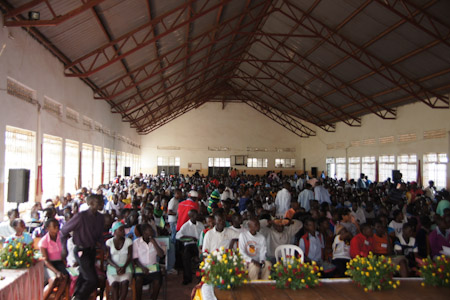
Devotions at the beginning of each day created a befitting environment for consultation and reflection
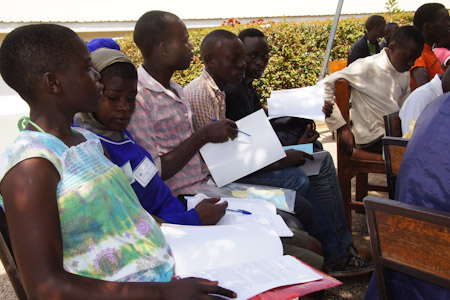
Small group sessions included discussions on how participants could help those younger than themselves
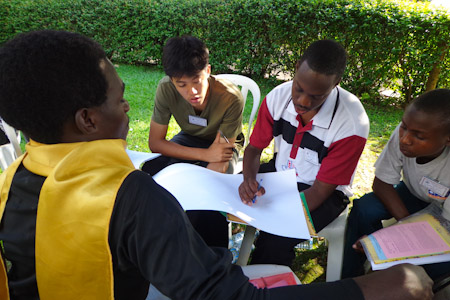
Those gathered shared their insights and consulted on how to better serve their communities
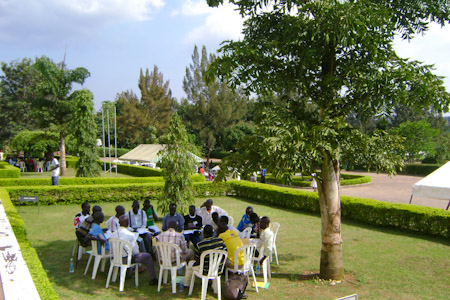
A group studies the conference materials under the shade of a tree
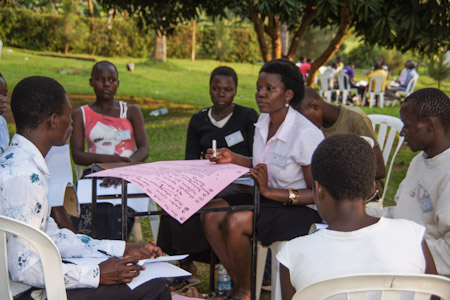
Workshops in smaller groups enabled more in-depth discussion on the conference materials
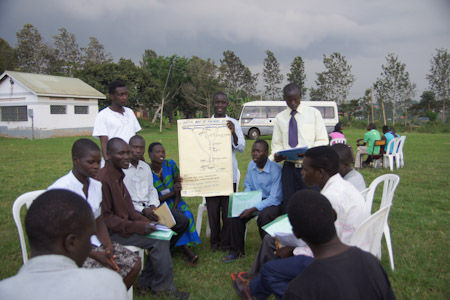
Participants wrote down their reflections to share in the plenary gatherings
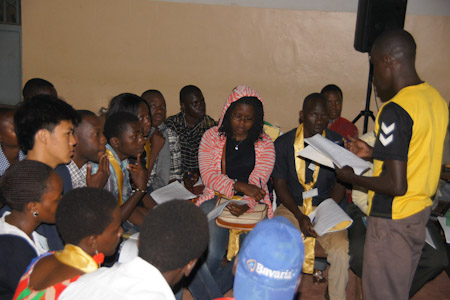
Groups comprising young people from the same regions reflected on their responsibilities in community-building
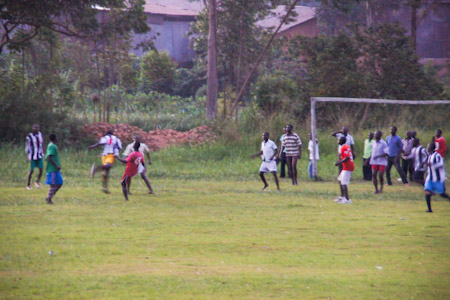
Participants enjoyed soccer and other activities during the breaks
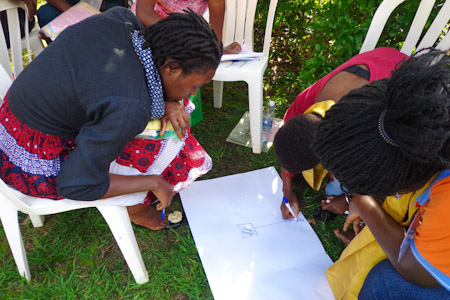
Youth used the creative arts to deepen their understanding of the concepts explored in the workshops
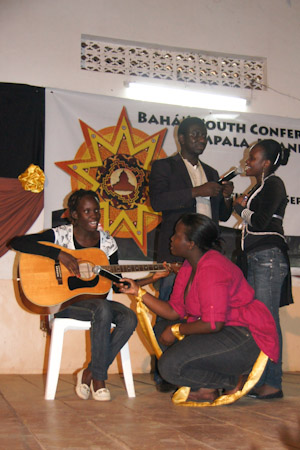
Evening plenary sessions were lively and full of artistic expressions
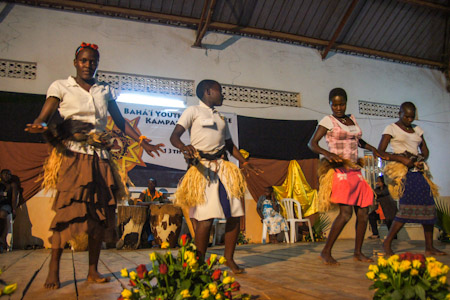
Participants from Masaka, in central Uganda, present a traditional Luganda
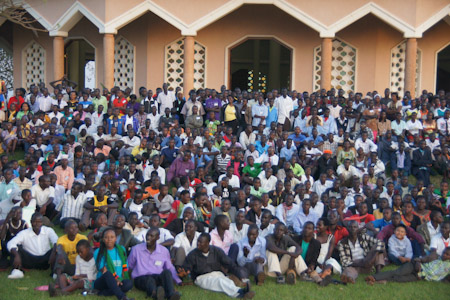
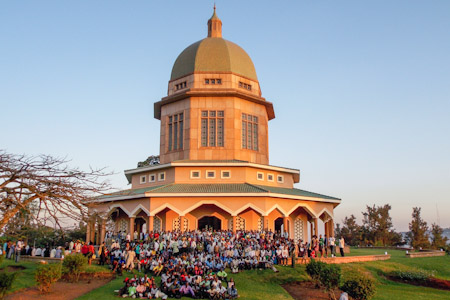
A collective visit to the Mother Temple of Africa, the first Bahá’í House of Worship in that continent, served as a befitting conclusion to the three-day gathering